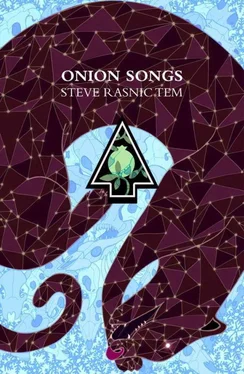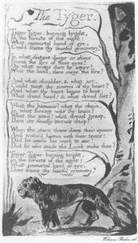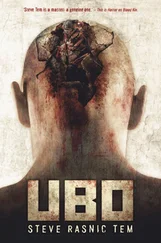4. philosophies
John read that one theory of the brain was that a single memory might be stored in multiple parts, much like a hologram. So parts of a brain could be reshuffled without destroying the integrity of that memory. Every card in the deck might vary slightly from every other card, while still containing the essentials of every other card. The variations might be extremely slight—differences in lighting, tone, or mood, but essential for all that. All together, the deck represented all the complex feelings and attitudes attached to a particular memory. But if you somehow managed to draw one card at a time, you could feel positive or hopeful or angry or depressed about a particular memory. Perhaps good mental health was simply knowing how to draw and play the best card.
5. events
When John was eleven years old, a far less auspicious age than ten, he was beaten up almost daily by a slightly older boy named Frankie Williams. It was the last great encounter of his life with personal violence, and although his exasperated mother called it “fighting,” there was no fight to it. It was a beating, pure and simple, ending only when sufficient blood had greased Frankie’s fist.
It was the blood that Frankie wanted to see, the only potion capable of releasing him from the violence he endured at home, and John unaccountably realized this almost immediately, and so allowed this to happen, even looked forward to it, because it was the strongest, most fantastic thing he could imagine, becoming, in fact, the most imaginative thing he was ever to do with his physical self.
6. events
Adolescence was pain, the first hint that disappointment lay beyond the brilliant fields of childhood. When he reached his teen years John developed an odd walk. The doctors didn’t know why—they suspected it was “emotional.” All he knew was that suddenly his body did not care for gravity, and the surfaces of the world seemed to demand some gait or stance other than his own. Even the furniture went wrong—beds and chairs seemed made for different spines. It was such a disappointment. He had come so close to normalcy only to see it slip away.
He eventually recovered from this condition, developing a kind of amnesia, the knowledge of his ailment briefly recovered here and there when the world went bad.
7. dreams
When he was twenty years old John stopped dating for more than three years. The precipitant was the last in a string of breakups, this with a young woman who said she could not stand that he could not tell her exactly why he loved her so much. “I just do,” he said. After the breakup he was driving his car down a darkened lane, glanced away for a second, then back again, to see the rear end of a truck suddenly filling his windshield. He jerked the wheel to the left, narrowly avoiding a terrible and no-doubt fatal collision. But part of him had continued straight on through the truck and out the other side. It was a mental accident, a psychic crash, and he felt sure it would happen again and again the rest of his life.
8. philosophies
Odd how in any life one event might come to the top and color and transform all others: an unexpected death, a windfall, a chance meeting, an injury, a song sung with a particular kind of feeling. Accident and happenstance, but once it occurred you could never look at the total accumulation of your life in exactly the same way again.
9. events
After a night of bar hopping and late-night driving through anonymous housing developments, John parked on a side street to walk and puke and clear his head. After an hour of this he discovered he could not find his car. He wandered the dark streets searching, but after a time he became more fascinated by the subtle differences among the houses in the development, how each family created its individual look. A different porch light fixture, a differently colored door, lawn furniture in front of one, bright curtains in a window. “We’re all the same here, but different,” they seemed to declare. He never found his car, opting to take the bus home instead. He never returned to retrieve it.
10. dreams
A woman John was dating disappeared one night never to be seen again. Her family and friends were frantic—he helped with the search. Now and again he would return to where she had last been seen—a gray street with glass- and steel-fronted shops. Like an operating theater. A mail carrier, said to have been the last to see her, stated she had stood in front of an empty display window for an unusually long time. When John came here he thought of surgery, that she had been surgically removed.
11. philosophies
He supposed the conventional wisdom was that one’s birth was the first event of a lifetime, the beginning of the story. But now John wasn’t so sure. What about the courtship, the circumstances of his parents’ first meeting, their attitudes and expectations? There was also the fact that he had not learned the details of his own birth—the blood, fractures, extended trauma—until he was in his thirties. So did that trauma affect him more before or after he learned the facts of it? There was also his conviction that, for some, birth marked the beginning of possibility, but for others, it marked the end.
12. dreams
A man in a crisp white suit followed John as he made his way from his house to the grocery store. On his way back he noticed the man in the white suit again, waiting on a bench, then following him again. John picked up the pace, and so did the man. John began to run, the man began to run. John dropped several apples out of his bag. The man picked them up and began eating them. John tripped over a curb and went sprawling, the man did several somersaults and a cartwheel. John picked himself up. The man bowed, smiled, and went on his way.
“Why?” John called.
But the man had become interested in someone else. John followed the man following this someone else. He had no idea what he was doing, but it filled the rest of his day.
13. events
The quality of John’s work had fallen off sharply in recent months. “I may have to let you go,” his boss told him.
“I’ll do better. I can do this,” John declared.
“No third chances,” the boss said.
“Of course not,” John replied. “I wouldn’t expect it.”
John stared at the papers on his desk. They made no sense to him. Why was he doing this? He got up and left the office, walked down the street, watched birds flying overhead. He watched people walking, some of them laughing, some of them holding hands. Why can’t I get paid for doing this? he asked.
He stayed away for two days. Of course they fired him. He checked the want ads every day, finally answering one.
The ad was for his old job. His interview went very well. His former boss said he thought John had initiative, not like that last fellow.
John got his old job back. He had a lot to do—the fellow who had formerly held this position had gotten woefully behind.
14. philosophies
It always amazed John, the power and influence of popular song. The aesthetic qualities of the tunes were seemingly irrelevant—even the stupidest composition might remain in your ear and force the rhythm for the day. Many songs seemed to acquire an added life in commercials and movies, often years after their initial release. Despite a certain tendency toward anarchy, he secretly hoped the government kept a close eye on these composers of our daily soundtracks. A musician with a dark motivation could conceivably do harm, guiding the unaware listener through a spectrum of emotional changes in a relatively short period of time. For his part, he would make himself more aware of his semi-conscious foot tappings and hummings, and put a stop to them now.
Читать дальше












